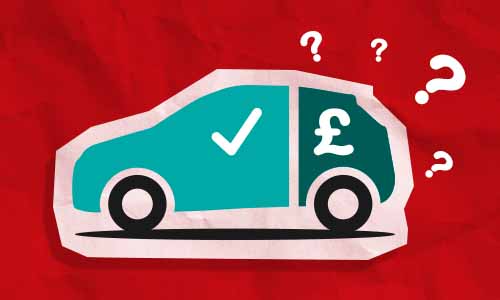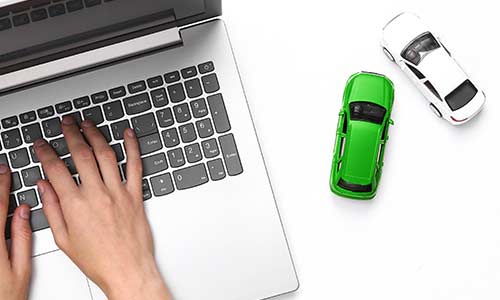Car finance calculator
Are you looking to get a car on finance? Before you do, find out how much your monthly repayments will be under a Hire Purchase (HP), Personal Contract Purchase (PCP) or personal loan agreement.
You can find out how much you will be paying each month by using our car finance calculator, how APR affects the total cost of your loan and what the best type of finance is for your requirements.
Car finance calculator
Are you looking to get a car on finance? Before you do, find out how much your monthly repayments will be under a Hire Purchase (HP), Personal Contract Purchase (PCP) or personal loan agreement.
You can find out how much you will be paying each month by using our car finance calculator, how APR affects the total cost of your loan and what the best type of finance is for your requirements.
Enter your details below and the finance calculator will automatically update.
repayment of
Enter your details below and our calculator will automatically update.
repayment of
How to use our car finance calculator
There are various ways to finance a car, with the most popular options being PCP, HP, or taking out a personal loan. Our car finance calculator allows you to choose from any of these options to see what your repayment plan would look like.
Regardless of the type of finance you choose, you will need to select how much you want to borrow, select the term of the loan and the APR. If you are taking out a PCP or HP agreement, you will need to enter your deposit, including any dealer contribution. Where you are calculating the cost of a PCP agreement, you will also need to enter the amount of the balloon payment, which is also known as the GMFV (Guaranteed Minimum Future Value) or option to purchase fee.
Once you’ve entered all of the required details, we will calculate your monthly repayments, the total amount you’re borrowing and the total amount repayable, including the interest. Reducing the length of the loan will increase your monthly repayments but lower the total amount you repay over the course of the finance agreement.
What are the different types of car finance?
There’s a lot to consider when you’re buying a car and unless you’re buying a car with cash, one of the biggest choices to make is which of the available car finance options to choose from.
There are a couple of main car financing options. If you’re looking at financing a car with the view to own the car or have the option to buy the car at the end of the agreement, the most popular options are PCP, HP or a personal loan. If you have no interest in owning a car at the end of a finance agreement, you may instead want to explore personal car leasing (PCH).
Personal contract purchase usually requires the buyer to pay a deposit, followed by regular monthly payments for the duration of the finance agreement. At the end of the contract, you will have the chance to either return the car to the finance company, pay the balloon payment (GFV) to purchase the car or use the equity in the vehicle towards another car if you’re part exchanging.
Hire purchase is similar to PCP, but without the balloon payment at the end of the agreement. Instead, you will usually pay a deposit, followed by regular monthly payments and a small ‘option to purchase’ fee at the end of the agreement. The monthly costs are generally higher than if you choose PCP, however, you will own the car at the end of the agreement for a nominal fee.
Hire purchase and a personal bank loan are essentially the same in terms of how the payments are structured. You will need to get approved for a loan and will get the cash in your bank. You will then use the funds from the loan and any savings you have to buy the car outright. This means that you will own the car straight away, whereas if you opted for Hire Purchase finance, you don’t own the car until you’ve made all monthly payments and paid the ‘option to purchase’ fee.
Things to consider when taking out car finance
When taking out finance, it is important to make sure that you can afford the monthly repayments. If you fail to make the repayments, the car may be seized by the finance company and have a negative impact on your chances of getting credit in the future. You can check the affordability of the monthly repayments by finding out how much you’ll be paying using our calculator.
When taking out finance, you should also take into consideration the overall cost of the loan, rather than just the monthly repayments. Our finance calculator will allow you to transparently see the total amount you’re borrowing, as well as the total amount repayable. It is recommended that you shop around for the lowest APR to ensure you aren’t paying more interest than you need to.
What do I need to apply for car finance?
To apply for car finance, you may need:
- Your bank account details
- Your car’s registration plate
- Your address, occupation and income details
- A contact number or email address
Are there any other costs involved?
Our car finance calculator will calculate the costs of the finance agreement, but there may be some other costs when buying a car. If you buy a car from a dealership, they may offer you extra products such as extended warranty, paint protection, servicing packages and maintenance agreements. If you’re having the car delivered from a dealership, you may be charged a delivery fee. Also, whilst it’s not common practice, there may be a transaction or admin fee added to the cost of the car.
Frequently Asked Questions
The amount you can borrow will depend on a number of factors including your income, outgoings, credit rating, choice of finance product (HP or PCP) and the car you choose to finance. Different lenders may have different criteria when approving you for car finance, so it may be worth checking with various lenders to get the best deal.
The amount you pay per month for your car finance will depend on your circumstances, affordability, the cost of the car you are purchasing, the term, deposit, and the APR. Before taking out finance, you should consider what you can comfortably afford and ensure you have enough to cover other costs such as insurance, fuel, tax, repairs, and maintenance. The finance product you take out can also affect the monthly repayments, with PCP having a balloon payment at the end of the agreement that can reduce the monthly costs, whilst with HP you will pay the full finance amount over the chosen term.
APR is a commonly used abbreviation for ‘annual percentage rate’. The percentage shows you how much you will pay back annually of your total borrowed amount.
Lenders may take your credit rating into account when deciding which car finance product to offer. The lowest APR finance may be reserved for those with the best credit rating, whilst a worse rating may result in you only being eligible for a higher APR offering.
The deposit is the amount of money you pay upfront for a car – this could be in the form of a cash deposit or the value of a part exchange. You don’t always need to pay a deposit to take out car finance, but it can lower your monthly repayments and the amount you will pay in interest as you will be borrowing less over the term of the loan.
Dealerships or manufacturers sometimes add a specific amount to the deposit provided by the customer on some finance products. You will add this together to get the full deposit amount that will be deducted by the price of the car to give you the amount you will need to take out on finance.










